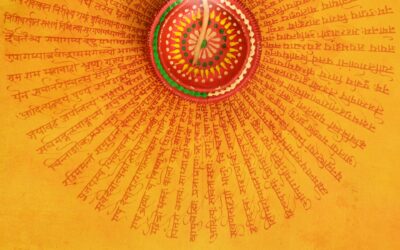Ayurveda (आयुर्वेढ) is among the oldest, if not the oldest, healthcare system in the world. It originated in India over 5,000 years ago and is based upon the five elements of nature and honoring their rhythms and laws. Often referred to as the Science of Life, “Ayur” (आयुर्) means science and “Veda” (वेढ) means life but “Veda” also means “to know beyond the known”. There is a higher intelligence that comes through when you are approaching life through this lens.
As human beings we are governed by the same rules and laws that the natural world is governed by. If we choose to ignore these laws, then imbalances begin to appear. These imbalances are the precursor to disharmony and disease. In Ayurveda, disharmony and disease can show up in the mind and/or the body. There is no separation of the mind/body in this system.
We observe the world, and its inhabitants, through the lens of the five elements; ether (space), air, fire, water, and earth. Ether and earth are static in nature, while air, fire, and water are dynamic and ever-changing. These elements have inherent qualities that govern their functions. We are a product of all of these qualities and their subsequent expressions. Each individual has a unique proportion of the individual elements, making everyone slightly different in their genetic composition.
Ayurveda assesses and treats each individual according to their unique psychological, emotional, spiritual, and physical constitution. Our world and bodies are in a constant dynamic dance. We are always adjusting to changes in the environment as well as acclimating, or not, to new environments.
Ayurveda concentrates on prevention through understanding one’s makeup and the effects that the outer world, environment, diet, and lifestyle choices make on one’s constitution and daily lives. The goal is to attain optimal health through a deeper understanding of self and one’s own particular nature in relationship to the world. Ayurveda is a system based on natural healing through strengthening the body, mind, and spirit and allowing the body’s own natural healing mechanisms to work to their fullest.
Ayurvedic health principles and practices contain the benefit of thousands of years of experience in understanding how we are integrated into the world around us, with a view of “holism” as compared to the view of “reductionism” that is provided within our modern medical system.
While Ayurveda focuses on the health of the whole individual, including lifestyle and lived experience, western medicine focuses on the management of disease. Ayurveda is the original preventative medicine. The ancients didn’t know of molecules, atoms, cells, microbiomes, and the like, in those terms. Instead, they developed their personal internal technology, their senses, through which they observed the same relationships and referred to them by different names. Knowing beyond the known. They focused on the observable and trusted its inherent intelligence.
Without question, there is a place for our modern medical system. It is in many ways a great miracle that saves lives every day. Still, Ayurveda remains a tremendous gift that prevents illness, promotes whole person health and promotes longevity. The body is always seeking balance and intelligently letting us know when we have gone out of balance. When we learn to observe ourselves and our relationship to the world around us from this place of intelligence, we are more equipped to live in greater harmony, health and dynamic ease.


0 Comments